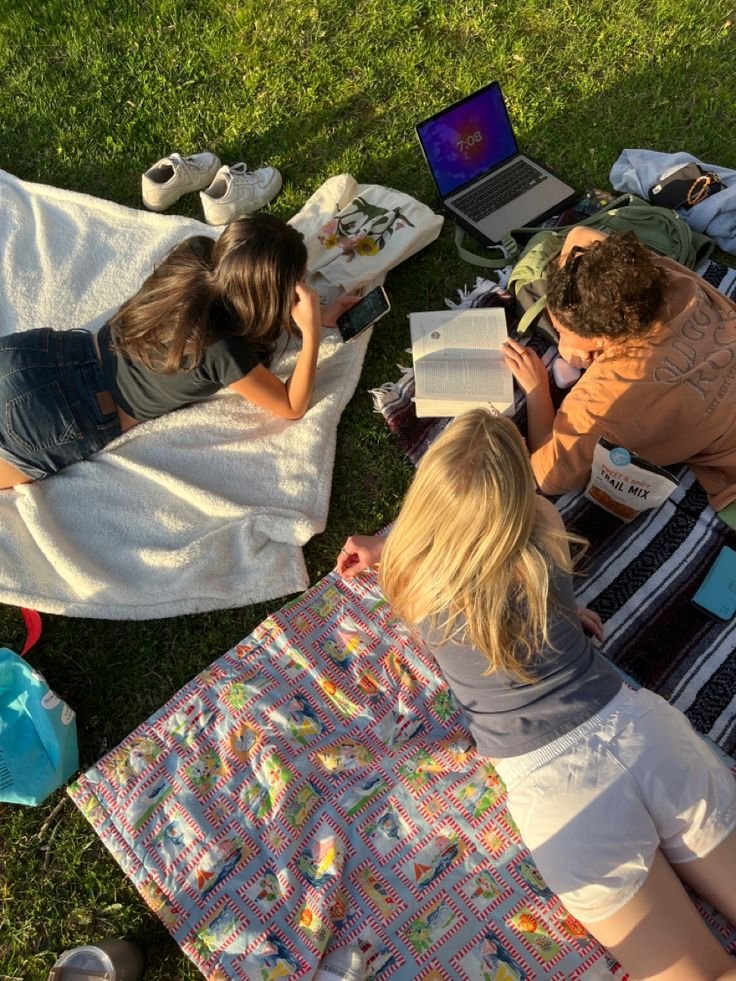A Guide to Living with your Parents in your 20s
The purpose of this guide is to help you reframe your way of thinking about living at home. Many feel like they're falling behind when it comes to living with their parents, but I’m here to say that it’s possible to continue on your journey of personal growth.
So, you’re a twenty-something-year-old living with your parents... It could be that you don’t have a job lined up after college, you need to save a bit more money, or you just need the stability to figure out a few things in your life.
Just follow these 5 steps.
01. Make Some Goals
7 Areas of Goal-Setting
One of the best ways to create an abundant mindset is to motivate yourself with some goals. Think of many areas in your life, and dream, as if you were a little kid again:
Health (eating habits, exercise, lifestyle)
Relationships (family, romantic, work, friendships)
Finances (income, budgeting, managing finances, debt, mindset)
Career (work/life balance, skill set, advancements, making money)
Self-care (self-awareness, introspective growth, healing)
Home life (sustainability, organization, atmosphere)
Extracurricular time (fun, vacations, hobbies, volunteering)
Struggling to Achieve Your Goals?
Now, after you’ve dreamt of all the things that you want to do, put a time-frame on it. Otherwise, you’ll allow all the time in the world to complete this task—creating a lack of urgency on taking the first steps.
If you’re still having some difficulties following through your goals take a step back and reassess.
(1) Maybe you’ve choosen too many goals? Pick one to start.
(2) You need a better why.
(3) Pair the goals with visualization.
02. Create Boundaries
It's important to clear the air with your parents that you’re not an 18 year old freshman who’s off to college anymore. You’re an educated adult (at least more than before)
Now that you have a list of goals that you want to accomplish, make sure you set some boundaries with your parents in order to achieve them.
Benefits of Setting Boundaries
Boosting self-esteem
Conserving emotional energy
Increasing independence and agency
Why are Boundaries So Important?
Setting boundaries could be for things like personal space, emotions, thoughts, possessions, time & energy. The last thing you want is to have poor boundaries, leading to anger and burnout with your parents. A lack of boundaries will only create a draining environment.
Make sure your boundaries align with your opinions and values, not your parents. However—it is still their home, and it’s important to find the healthy balance between rigidness and looseness. In other words, prioritize being flexible with your boundaries so the relationship is strengthened, not threatened.
03. Don’t Stop Adulting
The main reason why people in their 20s move back home is for stability. Whether that’s financial or emotional stability, there is definitely a decrease in stressors when living with your parents.
Depending on how caring your parents are—they may cook dinner for you, plan your health appointments, even do your laundry. I encourage you to maintain your independence and give yourself some responsibilities. They may say “oh it’s not a problem” and even want to do it.
But you need to support your boundaries with actions. You can’t just say you want your parents to treat you as an adult but have your mother do all the adulting for you.
Here are just a few examples to continue adulting at home:
Load and unload the dishwasher
Do your own laundry
Make dinner once a week
Book your own health appointments
Help your dad outside with yard work.
If the main reason you’re home is to save money, continue being mindful of your purchases and learn budgeting and money-management techniques. If you want to learn these skills quickly, create a sense of urgency again. Start paying for groceries from time to time, your own phone bills, your own gas, etc.
04. Find Joy in Living at Home
Now that you’ve set some goals, created boundaries, honoured them by maintaining your independence and responsibilities, now is the time to practice gratitude.
Many people in their twenties feel lost during the transition phase. “What career will I have?”or, “How will I be able to financially support myself?”
The issue, is they put too much pressure in figuring everything out in their lives. Stop comparing yourself to others who seem more put together than you. Social media lies all the damn time and comparison is truly the thief of joy.
Benefits of Gratitude
Research shows the easiest way to feel greater happiness is through gratitude. Some benefits include:
Better physical and mental health.
Increase mindfulness and positive emotions.
Build stronger relationships.
Ability to better cope with stressors
How can you Practice Gratitude?
How can you feel more gratitude? You could:
(1) Recite them as you meditate,
(2) Journal them down, or
(3) Tell them in person.
Many adults regret not spending more time with their parents. Ask them stories about their favourite memories, tips for learning new skills, life advice, and more. In turn, you may actually enjoy living with your parents!
05. Continue Taking Action
People in their 30s, 40s, 50s are always figuring out life. It’s not like you hit 25 and it all lands in your lap like “Ah! I know how to do everything now!” Nope. You need to actively participate in it.
Journaling
One of the best ways to prioritize personal growth is through journaling. Self-awareness opens the door to personal development. It’s not the reverse. There are hundreds of research-based prompts that promote a healthier lifestyle such as self-discovery, self-love, inner healing, and other ways to keep you on track with your goals.
Books & Podcasts
Another way to jump on the growth-mindset bandwagon is to further educate yourself. Read books or listen to podcasts on everything personal development: physically, spiritually, financially and emotionally. From there, find the role models who have mastered those areas and implement their techniques into your life.
I have a newsletter that comes out every week on elevating this decade by learning new habits in finances, career, relationships, wellness and more.
I hope you realize by now that just because you’re living at home, does not mean that you’ve stunted your personal growth. Most likely, you now have MORE time on your hands to figure out your passions, hobbies, career options, and implement healthier habits into your life.
Try to get out of your comfort zone!
Go volunteering, find some new skills, and see what sticks!
My Top 3 Books That Can Make This Transition Easier
Awaken the Giant Within By Tony Robbins
"Awaken the Giant Within" can help individuals in their twenties living with parents by guiding them to discover their potential and take control of their lives. By uncovering their strengths, passions, and goals, readers can develop a sense of purpose and direction, which can positively impact their living situation with their parents. Through Robbins' techniques and strategies for goal-setting, mindset shifts, and emotional mastery, individuals can cultivate the confidence and motivation needed to navigate challenges, communicate effectively, and build harmonious relationships with their parents while pursuing their own aspirations.
A New Earth By Eckhart Tolle (Top Pick)
"A New Earth" by Eckhart Tolle offers insights that can ease living with parents in your twenties by promoting inner peace and ego dissolution. Tolle's teachings encourage mindfulness in communication and acceptance of present circumstances, fostering harmony within the household. By connecting with one's essence and embracing acceptance, individuals can navigate familial relationships with wisdom and compassion, transcending ego-driven conflicts and fostering mutual understanding. Tolle's principles empower individuals to cultivate a deeper sense of peace and fulfillment amidst the challenges of living with parents.
The Mountain Is You By Brianna Wiest
"The Mountain Is You" by Brianna Wiest can assist individuals in their twenties living with parents by promoting self-awareness, emotional resilience, and boundary-setting. Through its insights, readers can learn to navigate the complexities of family dynamics, communicate effectively, and cultivate acceptance of themselves and their parents. By applying the book's principles, individuals can foster healthier relationships and a greater sense of autonomy while living at home.
Disclaimer: I assess all suggested products and services. If you choose to click on the links I share, I may earn compensation :)













